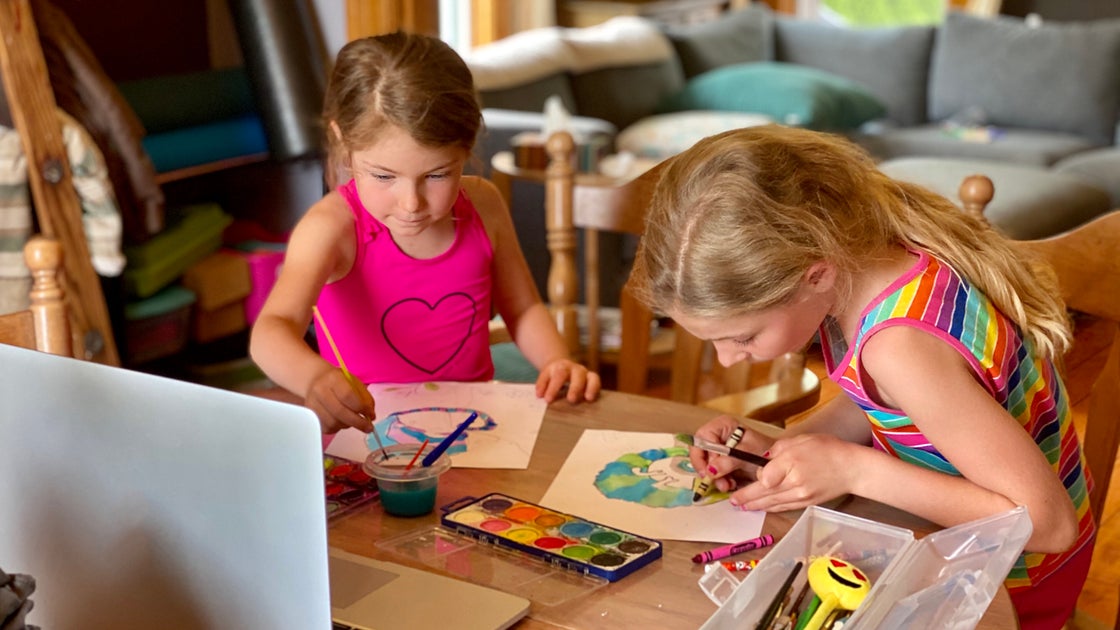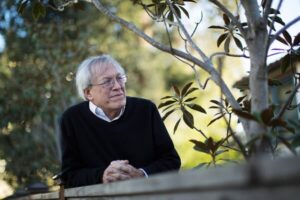
Experts And Former Students Confess Their Honest Thoughts About Unschooling
Scroll through TikTok or Instagram and you’ll likely come across families documenting their “unschooling” lives — children learning through nature walks instead of textbooks, kitchen experiments instead of science labs, and daily life instead of daily lessons.
The posts are idyllic: kids painting in sunlight, teens coding in cafés, parents narrating how freedom fuels creativity. “Life is learning,” many captions read — the unofficial mantra of the unschooling movement.

Lisa5201 via Getty Images
Unschooling, a form of homeschooling that removes formal curriculum entirely and emphasizes child-led, self-directed learning based on a child’s own interests, is gaining renewed attention as parents increasingly question traditional education systems. Some see it as the purest form of child-led learning. Others worry it’s just educational neglect in disguise.
So what’s it really like to grow up unschooled — and what happens when those kids grow up?
‘We hid from the school bus every morning.’
For Calvin Bagley, unschooling wasn’t a choice.
“I grew up in the Utah desert, where my parents pretended to educate us, but in reality, they were just isolating us from the world under the guise of religious protection,” he said. “By the time I was 10, even the pretense of learning had disappeared. There were no books, no lessons, no real education, just work and fear.”
He said a typical day meant chores, farm labor, and pretending to study whenever his father came inside.
“We hid from the school bus every morning because we were told school was evil, and I believed it,” Bagley continued. “My parents called it homeschooling, but it was really religious isolation that stripped us of connection, curiosity and childhood.”
Bagley, now an author of “Hiding from the School Bus: Breaking Free from Control, Fear, Isolation, and a Childhood Without Education,” said the lack of formal schooling left him with deep scars — and some hard-won resilience.
“It’s very difficult to say that anything good came out of my no-schooling, but if there’s one thing, it’s grit,” he said. “When you have to figure out everything on your own with no help or encouragement, you either break or you fight to survive.”
“When you have to figure out everything on your own with no help or encouragement, you either break or you fight to survive.”
– Calvin Bagley, author
When he finally made it into college, “It was incredibly difficult to thrive in such a structured environment,” he said. “I had never written a paper or taken a test before. Every class felt like a new language I had to learn from scratch.”
“My peers were building resumes while I was still building a foundation,” Bagley added. “College was the first classroom I ever sat in, and every class was an act of defiance against my past.”
Even so, he said his “no-schooling” instilled one thing: survival intelligence. “It didn’t prepare me academically, but it did make me resourceful. When you grow up having to make things work with nothing, you develop a kind of survival intelligence,” he said. “My no-schooling didn’t give me answers, but it taught me how to find them.”
“Not in the way I experienced it,” he said. “My version wasn’t freedom, it was captivity.”
‘Freedom with a foundation.’
For Amanda Schenkenberger, unschooling looked very different.
“A typical day meant a little reading, maybe some math, and lots of outside time,” she said. “I grew up on a ranch, so there were always chores, feeding animals, scrubbing water barrels, helping out, but also plenty of freedom.”
Schenkenberger, now a homeschool mom and coach herself, said the approach gave her something traditional schooling often doesn’t: self-awareness.
“Unschooling taught me how I learn best,” she said. “Because I had the freedom to explore at my own pace and follow my curiosity, I became a great researcher and problem-solver.”
Still, the transition to high school wasn’t seamless. “Having been unschooled in my middle school years, no one really taught me how to write an essay or organize my thoughts clearly. That was a skill gap I had to overcome later,” she said. “Even though I went on to write a book, those writing abilities were hard-won.”
But socially and professionally, she said she thrived. Her first job at 16 was working at Starbucks. “Growing up on a ranch gave me a strong work ethic and a sense of responsibility from a young age,” she said. “My bosses often complimented my initiative and reliability.”
As an adult, Schenkenberger still sees value in the unschooling philosophy — with tweaks.
“Yes, and we are,” she said when asked if she’d choose unschooling again. “My husband and I are raising our four boys with a more structured approach to unschooling. We focus on what I call our Core 4: math, language arts, science and social studies. We give plenty of time for play, reading and exploring their ‘zone of genius,’ but we also prioritize writing and communication. It’s that balance — freedom with a foundation — that helps our homeschool thrive.”
Experts say: curiosity is key, but balance matters.
Unschooling has its roots in the educational reform movements of the 1960s and ’70s, popularized by educator John Holt. Its guiding belief is that children are naturally driven to learn — if adults don’t get in the way.
“Unschooling removes formal curriculum altogether, allowing a child’s interest and daily life to guide learning,” said Kirsten Horton, an educator who’s worked across Montessori, Title I and independent schools. “While Montessori and homeschooling both share similar elements of allowing the child to follow his/her interests, unschooling is more improvised, student-led, and rooted in curiosity.”
She said the model can “spark intrinsic motivation and agency” — but cautions that not every child will thrive in such an open environment. “Some children may struggle with the lack of structure, sustained effort, or self-regulation required,” Horton said. “When unschooling is done with a strong balance, it can lead to independent, articulate learners. However, it is important for parents to be mindful and to keep experiences balanced, so as not to leave gaps.”
Her takeaway? “Children learn best when curiosity, structure and connection coexist.”
What the research shows — and doesn’t.
Curby Alexander, an education researcher and former schoolteacher, said unschooling is “an approach to education that does not rely on typical school methods or curriculum.”
“The focus of unschooling is children and their parents living life together, rather than each doing separate things during the day at work and school,” he explained. “Children and parents focus on having experiences together, parents and children learn together as they pursue their interests and cultivate their natural desire to learn and grow.”
Alexander notes that research on unschooling’s long-term effects is limited — but early findings suggest mixed results. Citing studies by Peter Gray and Gina Riley, he said “83% of respondents attended a post-secondary school….Half reported advantages relating to their unschooling: not being worn down by prior schooling, the self-direction they had learned, and their determination to get as much as the educational institution had to offer.”
“Perhaps unschooling works because it involves such a small number of people… It will always be a good option for some families, but I do not believe it will ever be the best option for everyone.”
– Curby Alexander, Ph.D., an education researcher and former schoolteacher
He cites an example of a family friend who unschooled her children and did not impose any academic requirements on them. At the age of 8, one of her children still did not know how to read and had no interest in books, but he loved playing Minecraft. His older brother told him there were online forums where Minecraft enthusiasts posted their strategies for playing the games.
According to the father, his son taught himself to read in a matter of weeks so he could access the online forums and learn from other Minecraft gamers. Similarly, the older brother in this story learned to read at an early age because he had a keen interest in World War II, particularly the tanks used by each country in the war.
“Based on these two examples, my belief is that unschooled children learn skills and knowledge when they desire to do so, not when it is imposed on them by an adult or school,” said Alexander.
But personally, he isn’t convinced of unschooling scales. “As a parent, I am not a fan of this movement,” he said. “Perhaps unschooling works because it involves such a small number of people… It will always be a good option for some families, but I do not believe it will ever be the best option for everyone.”
‘Learning doesn’t have to follow a fixed map.’
Cindy Chanin, founder of Rainbow Education Consulting, said the rise of unschooling reflects a broader cultural shift — parents seeking meaning and flexibility in education.
“Unschooling is rooted in the belief that a child’s natural curiosity can be a compass — that learning doesn’t have to follow a fixed map to be meaningful,” she said. “Instead of adhering to a predetermined curriculum, students pursue their interests as they emerge, while parents step into the role of facilitators and resource curators.”
Chanin said when it’s “thoughtfully supported,” unschooling “can nurture a strong sense of intrinsic motivation.” But again, the keyword is thoughtfully. “The key is how intentionally adults are creating an environment that supports autonomy without letting kids feel adrift,” she said. “When that balance is struck, unschooling can be incredibly empowering.”
“The key is how intentionally adults are creating an environment that supports autonomy without letting kids feel adrift.”
– Cindy Chanin, founder of Rainbow Education Consulting
In her work with families, Chanin said she sees unschooled students “enter adulthood along beautifully varied paths,” often thriving in creative or entrepreneurial fields. “Because they’ve spent their formative years navigating their own learning paths, many are comfortable forging unconventional routes and adapting to new environments,” she said.
But she stops short of idealizing the model. “I wouldn’t say I’m squarely ‘for’ or ‘against’ unschooling — it really depends on the child, the family and the support system in place,” Chanin said. “When the approach fits the learner, that’s when the magic happens.”
Unschooling, much like the children it serves, resists one-size-fits-all conclusions. For some, it fosters freedom and creativity, for others, it leaves painful gaps.
What’s clear is that the growing fascination with it — and the glossy Instagram portrayals — reflect a broader anxiety about the state of education itself: over-testing, burnout and distrust of institutions.
As Bagley put it, the difference between healthy freedom and harmful neglect often comes down to one thing: care.
“When they call for help from the top of a playground slide,” he said, “someone comes running. That’s the difference between control and care.”
Source link


